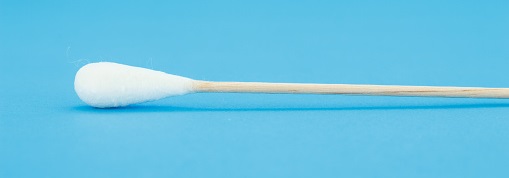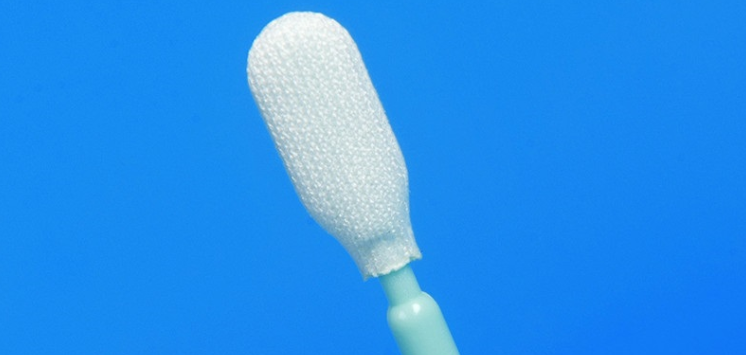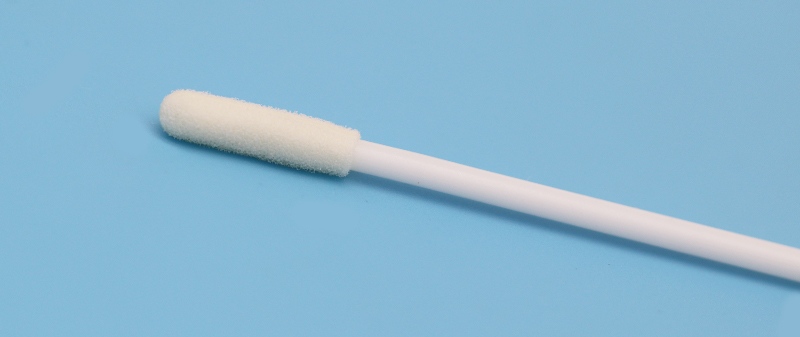What are the cotton swab models of HUBY-340?
1682What are the cotton swab models of HUBY-340? Swabs (For Clean Room) HUBY(R) 340 100 Pieces and others HUBY-340 SWAB BB-001 HUBY-340 SWAB BB-002 HUBY-340 SWAB BB-003 HUBY-340 SWAB BB...
View detailsSearch the whole station Lab Supply
In 2022, the COVID-19 has not been eliminated. All close contacts, transnational people, etc., will be required to undergo nucleic acid testing until a negative test result proves to be able to complete the trip more smoothly. The speed and accuracy of covid 19 testing have become essential. The quality of the collection tools has also played a decisive role to a large extent, and the nylon flocked swab is one of the best tools.
The flocking swabs, widely used in testing for SARS-COV-2, use the most advanced spray-on technology and electrostatic charge flocked method to attach nylon fibers vertically and evenly to the tip of the medical-grade handle. Millions of nylon fibers significantly increase the surface contact area of the swab tip, which facilitates sample adhesion. Since the flocking swab traps the collected sample on the surface of the nylon fiber at the tip of the swab without the internal fabric over capturing the sample, it can quickly elute about 90% of the original sample, which helps to collect a small amount of specimen. Its excellent ability in sample collection and elution makes it the preferred medical swab for sample collection such as DNA testing, virus collection, forensic evidence collection, etc.
In addition to nylon flocking swab, the most common collection swabs currently on the market are cotton swab, rayon swab, dacron swab, and polyurethane foam swab. The CDC of the United States clearly stated in InterimGuidelines for Collecting, Handling, and Testing Clinical Specimens from Persons for Coronavirus Disease 2019 (COVID-19) that “Use only synthetic fiber swabs with plastic or wire shafts. Do not use calcium alginate swabs or swabs with wooden shafts. ” Why are fiber swabs better? Let’s take a look at some of the products one by one.

Advantages:
Disadvantages:
Appropriate Use:
It is suitable for cleaning and applying medicine to common wounds and collecting specimens from the vagina, cervix and urethra.

Advantages:
Disadvantages:
Appropriate Use:
Microbiological research, collection virology, specimen examination, rapid test diagnosis and sample collection in PCR analysis.

Advantages:
Disadvantages:
Appropriate Use:
Virus detection, sample collection, rapid test, and diagnosis, etc.

Advantages:
Disadvantages:
When used as a medical swab to collect biological samples, the release rate is low.
Appropriate Use:
Suitable use: cleaning all kinds of precision instruments, including medical instruments, lenses, printer nozzle solutions and chips, etc.

Advantages:
Caution:
In order to prevent someone from accidentally breaking the flocked swab in advance and letting it fall on collection positions, professionals or people who have received relevant training are required to regulate the use.
Appropriate Use:
It is widely used in bacterial sample processing, cell culture, polymerase chain reaction and rapid testing.
It is suitable for respiratory virus sampling and is the preferred tool for COVID-19 testing.
There are various types of swabs on the market, and they have different characteristics and uses. The material and structure of the swab will directly affect the efficiency of sample collection and release, and the use of inappropriate types of swabs may result in false-negative results. Dacron swab, rayon swab, and nylon flocking swab are all suitable for POCT test, among which flocked swabs perform exceptionally well in novel Coronavirus nucleic acid tests.
“HCY, Health care for you” is our forever mission. We dedicate to offering safe & reliable products and medical services with our global creditable partners. HCY has already supplied to WHO, MAYO clinic, MGI, DDC, Yale University, Qorvo, Quanterix, Thomas Scientific, SD biosensor, Cardinal Health, Cleveland Clinic, Mars Petcare & LumiraDx, etc. in the past years.
What are the cotton swab models of HUBY-340? Swabs (For Clean Room) HUBY(R) 340 100 Pieces and others HUBY-340 SWAB BB-001 HUBY-340 SWAB BB-002 HUBY-340 SWAB BB-003 HUBY-340 SWAB BB...
View detailsCleaning swabs are manufactured and packaged in Class 100 clean rooms with low foam particle and ionic content and are silicone, amide, and DOP-free.
View detailsDisposable sterile foam swabs are mainly used for covid-19 nucleic acid test sampling, antigen test kits, and for collecting various biological or ...
View detailsOn May 10, Huachenyang (Shenzhen) Tech Co., Ltd. independently developed and produced disposable sterile sampling swabs that received CE 2862 certi...
View detailsWe value your privacy We use cookies to enhance your browsing experience, serve personalized ads or content, and analyze our traffic. By clicking "Accept All", you consent to our use of cookies.
Our Privacy Policy